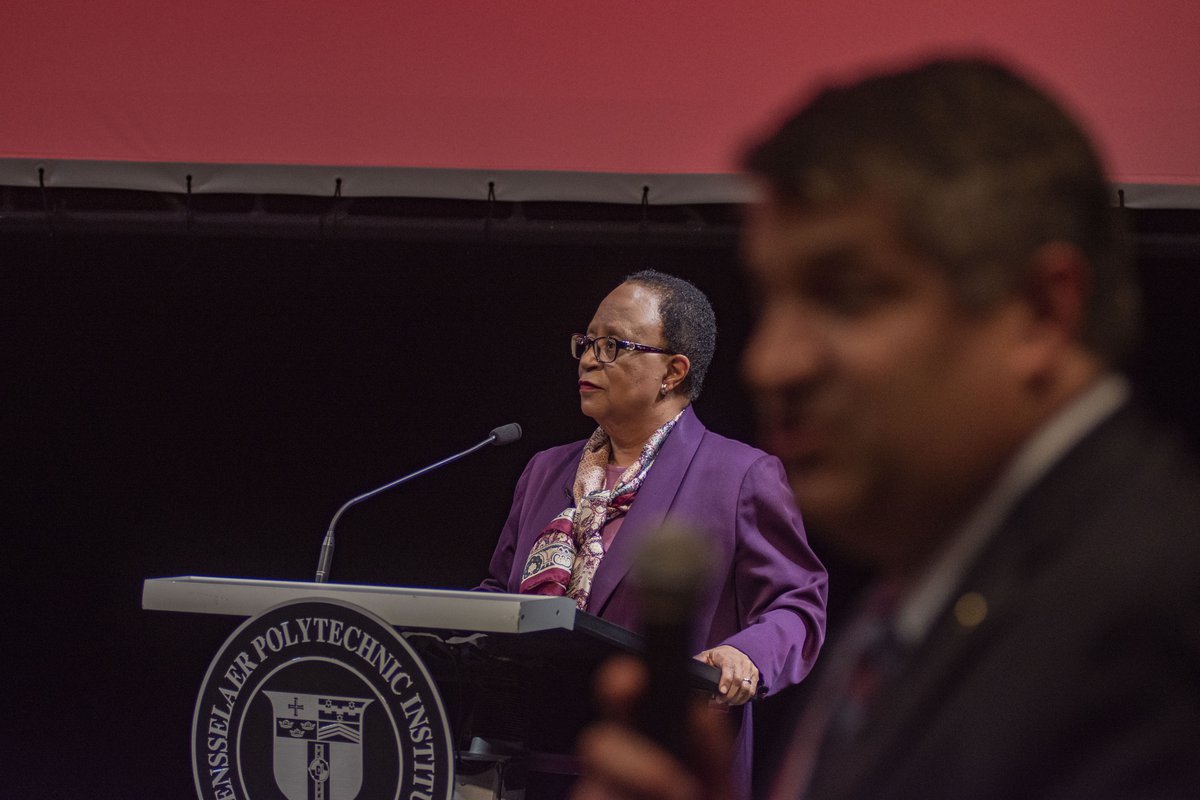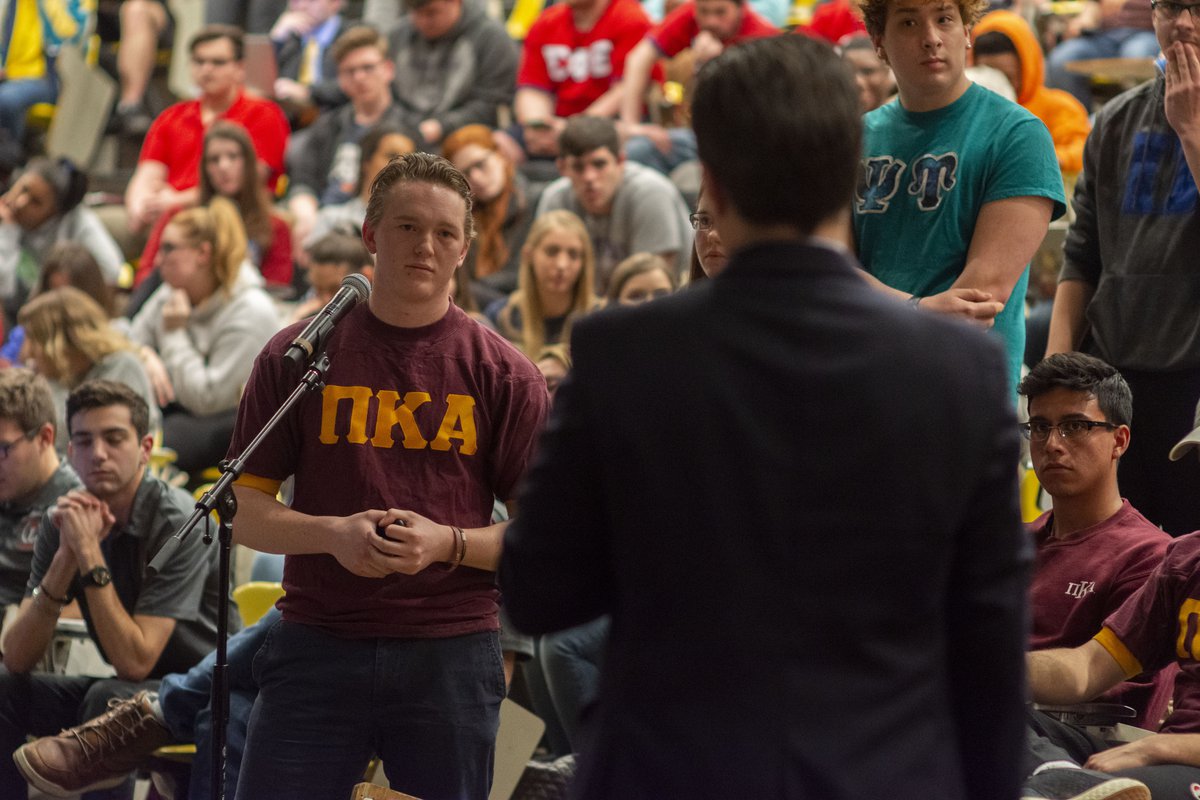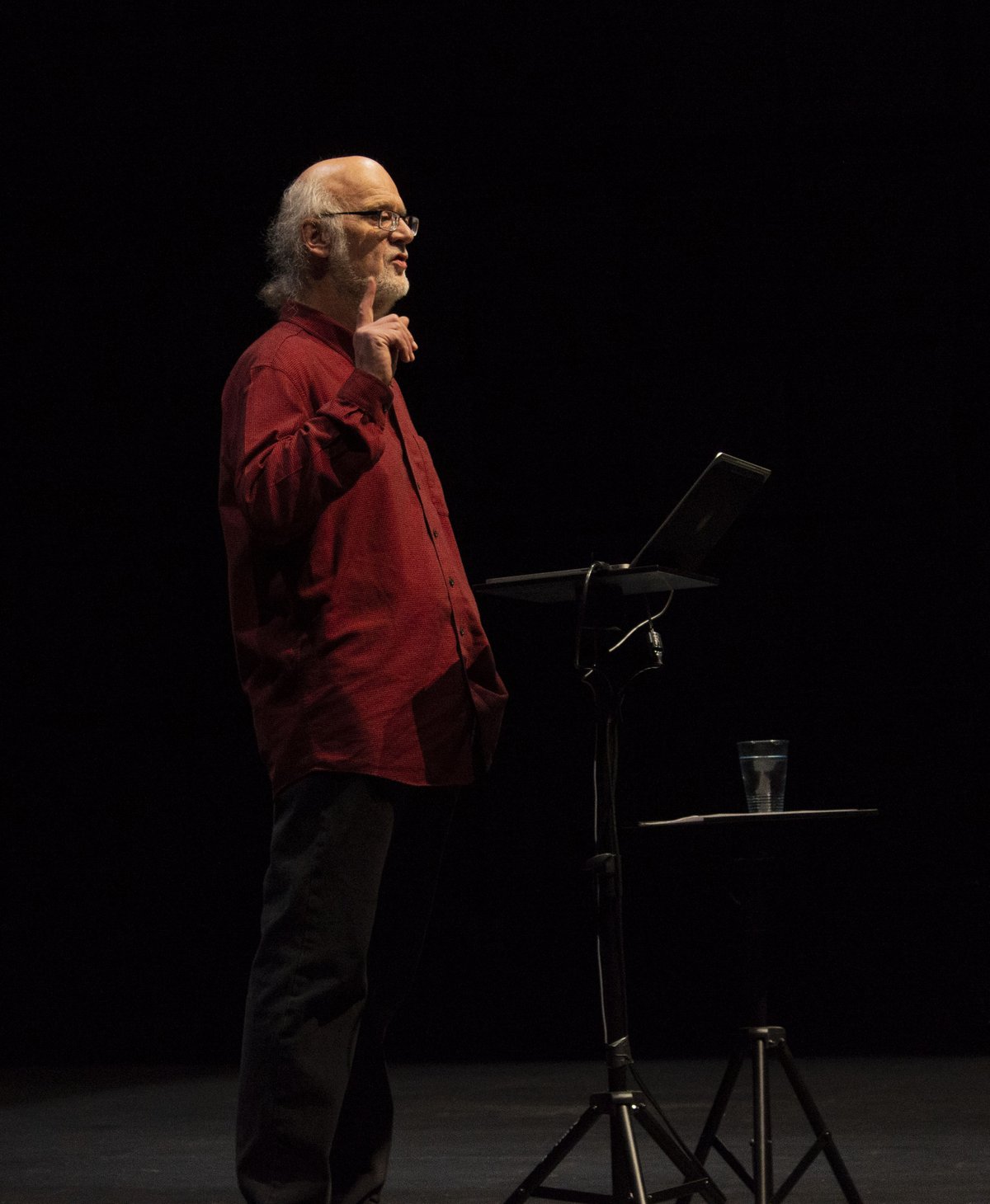Jackson announces 10-petaflop supercomputer
Arch, Greek Life, Counseling Center, and flood addressed in biannual meeting

During this semester’s Fall Town Meeting held Wednesday in the EMPAC Theater, President Shirley Ann Jackson spoke in front of a smaller-than-usual crowd about the acquisition of a new supercomputing facility, the establishment of a Greek Commons fund, and the impacts of the recent storm on RPI’s campus.
After her speech, Jackson fielded audience questions ranging from the availability of Greek Staff to issues with the Counseling Center, among others.
RPI TV’s live stream of the meeting can be found below, and a transcript of Jackson’s address—which omits asides and the Q&A—can be found here. What follows are some essential points.
The Arch will not be optional.
Fielding a question from The Polytechnic, Jackson said she would not consider an optional Arch program, elaborating that many employers are “quite excited” about the Arch and that employers think the program is essential in making RPI students competitive.
The Institute is purchasing a state-of-the-art supercomputing system as part of a $30 million grant.
As part of RPI’s Artificial Intelligence Research Collaboration with IBM, Jackson explained that a “major Institute thrust in data, artificial intelligence, and high-performance computation” will be established "shortly," leading to new academic programs, research, and expanded computer power.
In order to create the “most advanced university-based testbed for artificial intelligence and deep learning” in the world, Rensselaer received a $30 million grant from the SUNY Research Foundation to buy a new supercomputer system.
The computing system as a whole will have “on the order of 10 petaflops” in computational power, which would rank in the top 25 most powerful computer systems worldwide.
RPI Alerts are not issued unless Public Safety “knows the facts,” and Jackson wants RPI to be better at “closing the loop.”
In response to a student’s question concerning the armed police presence during the October 15 traffic stop incident, Associate Vice President and Director of Public Safety and Emergency Management Vadim Thomas said: “We had no idea that there would be a pursuit through our campus.” Therefore, he elaborated, there was no immediate RPI Alert issued because Public Safety needs to know “what exactly took place” before sending a notification to students.
The student asking the question also noted that other than the two alerts, “no further information was given from the school that day or since.” Jackson said she understood this point, and that Rensselaer will “do better” with providing more information after incidents like these happen.
[A more detailed article on the questions related to the incident can be found here.]
Rensselaer is establishing a Greek Commons fund.
This fund, explained Jackson, would be built from the contributions of all Greek students, supported by an initial contribution from administrators, including herself, the Office of the President as a whole, and Vice President for Student Life Peter Konwerski. It would be used for projects that would “improve the living environment” of Greek houses. She also addressed student concerns surrounding the lack of Greek staff at RPI.
[To read more about what Jackson said about Greek Life during the meeting, see our article here.]
The campus is still affected by the August storm.
During her presentation, Jackson noted that 20 campus buildings were affected by flooding or roof leaks during the storm on August 21, including two student residences: the Rousseau Residence Hall in the Stacwyck Apartments and the Colonie Apartments on Burdett Avenue.
Students slated to live in housing affected by the flood were moved to Tech Terrace, a new off-campus residence, and the Polytech Apartments. In order to “minimize disruption” to displaced students, they will not need to move back to their anticipated housing until the start of the Spring semester.
Repairs to Sage Avenue and Federal Street by the city of Troy are ongoing, as is some repair work in damaged housing, with Jackson reporting that the Institute is undertaking a “comprehensive assessment” of future flood mitigation strategies.
The Counseling Center is about a month and a half away from securing a new psychiatrist.
Answering a question from The Polytechnic, Executive Director for Health and Wellness Leslie Lawrence, who is also a doctor in the Student Health Center, elaborated on that timeframe, saying that, “in the worst-case scenario,” the Counseling Center is two months away from filling the currently vacant psychiatrist role.
Lawrence said the Counseling Center was “surprised” by their psychiatrist’s retirement, and that “recruitment is going well.” He specifically said that he wants a psychiatrist who will “draw our students out, have a very bubbly personality, as well as be really qualified.”
Further, Lawrence said he “would like to hear” from any student who isn’t receiving medication in a timely fashion. He noted that in the United States, almost 80 percent of psychotropic medicines are prescribed by general practitioners, not psychiatrists. He also explained that there’s a “relative shortage” of psychiatrists in the U.S.
Because of this, right now in Student Health Services, if a student can’t see the psychiatric nurse practitioner (who is filling the psychiatrist role during the hiring interim), they are referred to the physicians in the Student Health Center who can prescribe them medicine for “uncomplicated cases” of anxiety and depression. However, for more complex cases, students may be referred to an outside psychiatrist.
Lawrence said that students shouldn’t experience a “lag” if they need medicine and that he’d be disappointed if there was one.

 Greek Life
Greek Life
 Campus Health
Campus Health
 Opinion
Opinion
 Empac Event
Empac Event